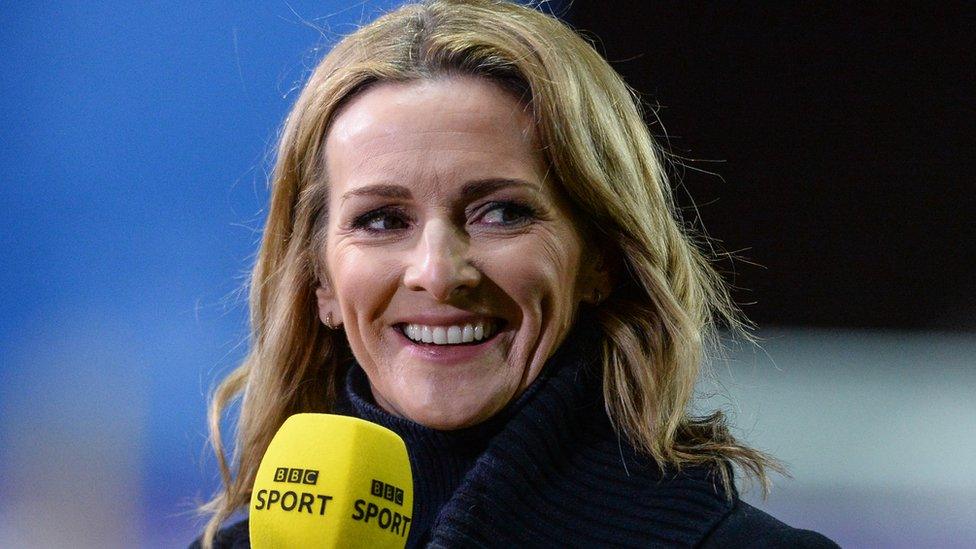Menopause: The Bedfordshire clinic that is 'changing lives'
- Published
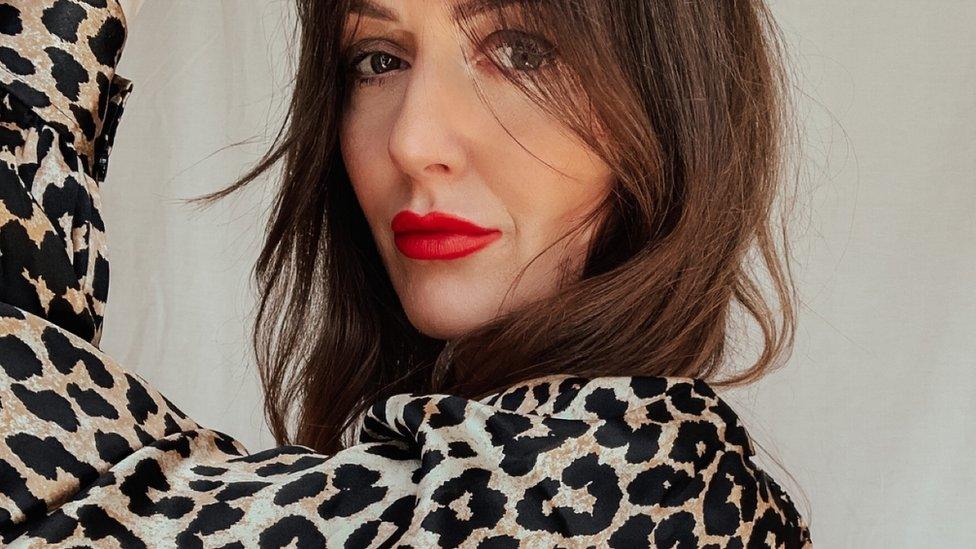
As a fashion stylist Isabel Kelly has written about how to wear clothes while experiencing hot flushes
The menopause comes with more than 40 common symptoms ranging from anxiety, irregular and heavy periods to anger and problems with memory and concentration. Many women experiencing what is commonly called "the change" can feel lost, alone and unsure of where or how to get help. I should know, as I've been there. Might dedicated clinics and workplace menopause policies offer women the support they need?
Isabel Kelly was in her 30s when she started going through the perimenopause, that slice of time when hormone levels become erratic and before periods cease.
By 42 the hot flushes had "ramped up" to "unbearable" levels were accompanied with a bloated stomach and unexpected electric shocks.
She did what most women would do and sought help from her GP.
"You have to help me because I'm rocking in the corner, I need help now I feel like I'm going mad," the Bedford-based mother, fashion stylist and writer told her doctor.
Her male GP put her on hormone replacement therapy (HRT). And that, it seemed, was that.
But then a friend told her about a service almost unheard of in the UK - a newly founded free-of-charge menopause clinic in Bedford.
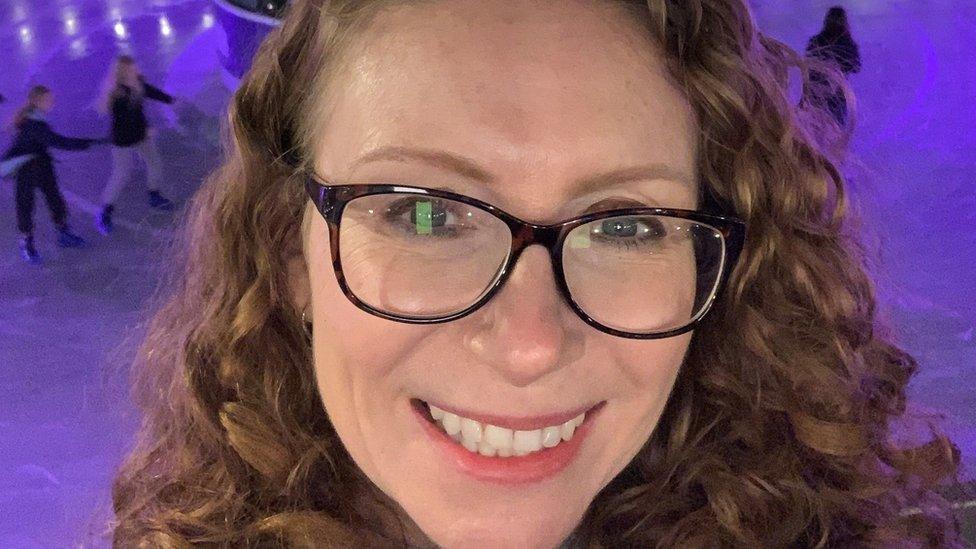
Lesley Quinn says being a single mum she leads a busy life but she loves running her medical clinic
The menopause clinic was the brainchild of Lesley Quinn, a lead nurse who has personal experience with the menopause, and started work in February 2020.
Run by the not-for-profit social enterprise Bedford Doctors on Call (Bedoc, external) the clinic is, according to Ms Quinn, one of "very few" such clinics commissioned by NHS primary care.
"There was a need for a more specialised and targeted way of looking after ladies," she said.
Ms Quinn asked managers at Bedoc how they would feel about her "going off to do a bit of training and then actually starting a dedicated medical service as part of our extended access".
To her delight, the answer was, she said, "yes fine carry on - off you go".
The service started with six patients. Two years later, the clinic has 31 patients on its books and 27 follow-ups to attend to.
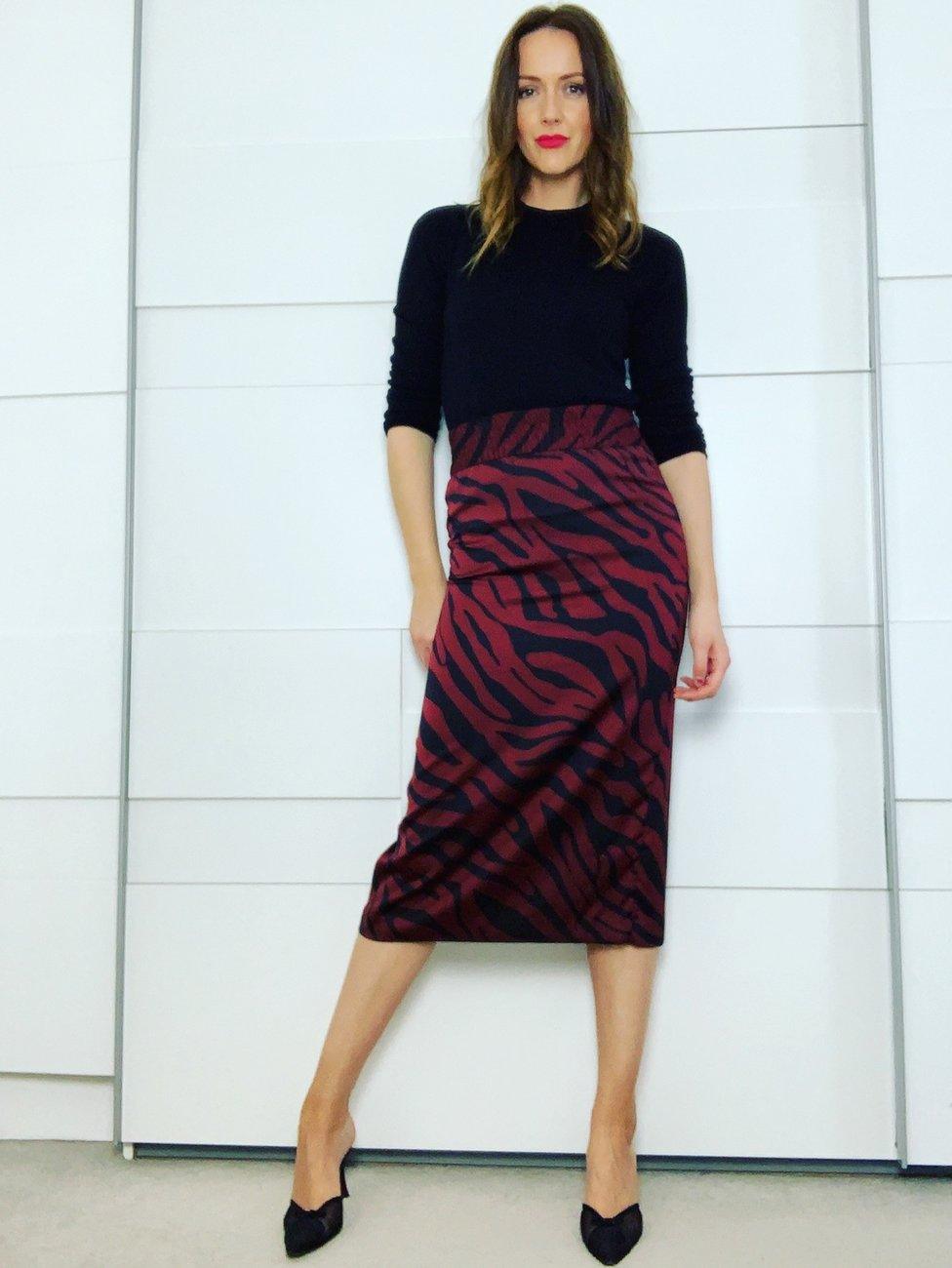
Isabel Kelly believes women are talking about the menopause more and as a stylist she is used to talking to and dealing with women
Ms Kelly was one of the first patients through the clinic's doors.
Seeing Lesley and having her HRT regimen altered was "life changing", according to Ms Kelly.
She explained how within a month of attending the clinic the symptoms with which she struggled most - the itchy skin and difficulty sleeping - had disappeared.
Ms Kelly said it was hugely important for women to feel able to talk about their symptoms.
"It still feels taboo but it's a stage of life," she said.
When Ms Kelly began posting about her experiences on her Instagram, external feed she found herself being contacted by "hundreds and hundreds" all saying they were "going through the same thing".
Lesley says she loves her clinic but is also extremely proud of the service but feels for women who do not live in her area, as "they aren't able to access that help and support."
"It's literally changing their lives when you get them stabilized on HRT.
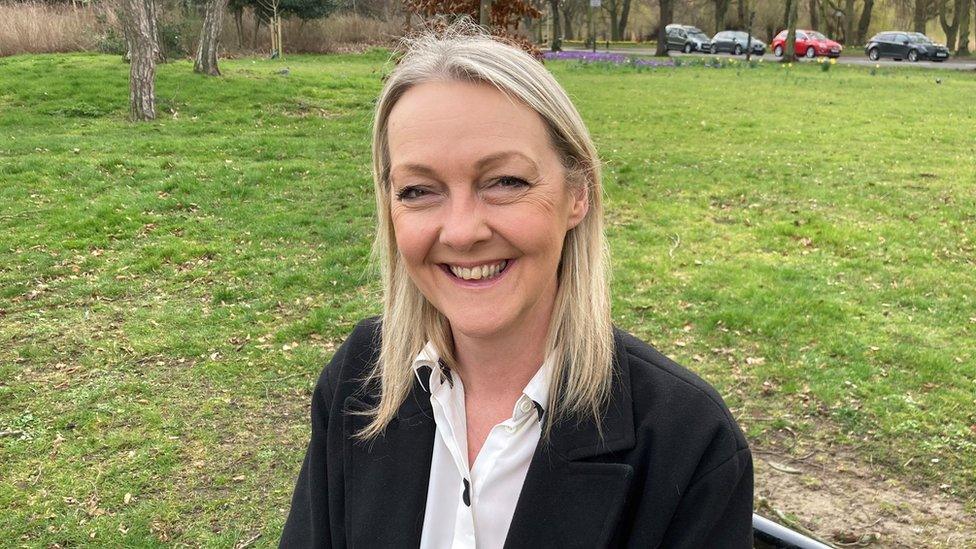
Sam Price says her perimenopause symptons started about three years ago
Sam Price, 54, from Bedford, realised she was going through the menopause after talking to her older sister.
Her symptoms, she said, included a sense of rage which left her at times wanting to "punch people in the face", heavy periods, night sweats, hot flushes and being "emotionally all over the place".
Her doctors' surgery did not tell her about the dedicated menopause clinic.
So she was treated by her GP and claims she did not get the help she needed straight away.
"Fortunately I'm quite bolshy and I stand my ground," she said. "I kept going back and saying 'this isn't good enough it's definitely the menopause and you need to give me something'.
"It was like that all the time, crying for no reason, the next minute I would be angry and the next minute I would be deliriously happy, it was a real emotional rollercoaster."
"I think a lot of women are reluctant to go down the medical route, we all think 'I can do this, I can be different, I don't need to see my GP'."
But she says speaking to friends, people, an employer and medical experts helps.
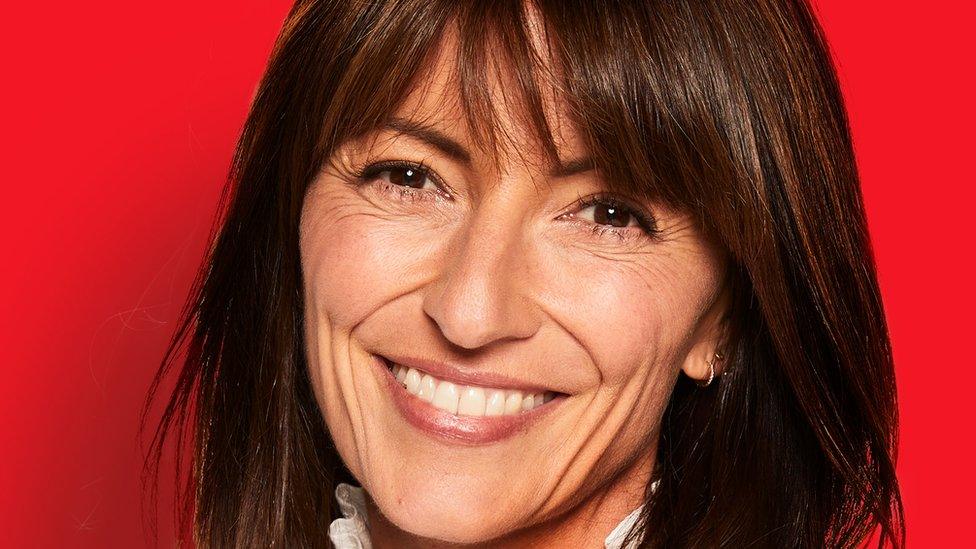
TV presenter Davina McCall speaks openly about the menopause and made a documentary about it for Channel 4 in 2021
After watching a documentary made by Davina McCall on the menopause she says she sent round a menopause policy to all 62 of her colleagues at Signposts, a Luton-based homeless charity.
The policy said that "managers will seek to support staff sympathetically rather than moving directly to capability or disciplinary procedures" and explains how support and help will be offered.
This can include changing the temperature of the office, allowing a change of duties or providing facilities for staff to change their clothes during the working day.
The response she got, she said, was "amazing and heart-warming".
"It's lovely for them to feel they can be really open and have someone to go to now."
She urged other women to "speak to your doctor" adding: "There's no shame in going down the medical route.
"If you need HRT, take HRT because it's made such a different to my life and my family.
"It's not for everyone but it was for me".
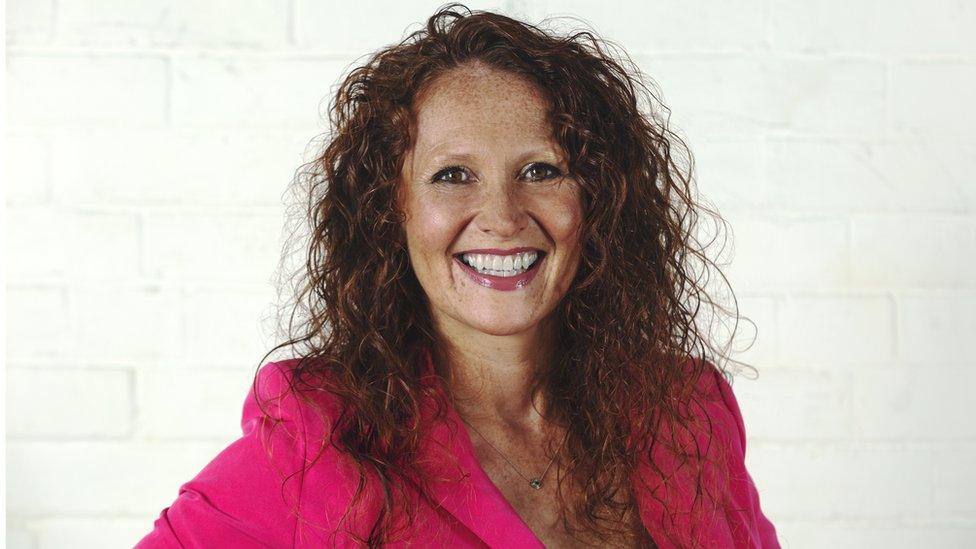
Rachel Young runs Phoenix Hypnotherapy and Counselling, offering therapeutic intervention for adults, adolescents and children
"Talk, ask the questions don't be fobbed off, it's about listening to your body", said Rachel Young, 50, The Menopause Mind Expert, external, a psychotherapist, counsellor and mother-of-five from Riseley in Bedfordshire.
"I think the menopause is where mental health was a few years ago.
"We're really the first generation to be talking about this because it's always 'the change', whispered and not shared".
Ms Young, who runs The Menopause Mind Hub, external, said joining a menopause group on social media can help.
She urged women who were struggling with the menopause to "be determined" and comfortable about saying something was "not okay" or not working.
"We have to advocate for ourselves," she said.

The menopause
It is a natural part of ageing that leads to changes in a woman's body as oestrogen levels decline
Menopause usually occurs between 45 and 55 years of age
Many women experience a series of uncomfortable symptoms during and leading up to the menopause
In the UK, the average age for a woman to reach the menopause is 51

Gynaecologist Dr Heather Currie, MBE, trustee of the British Menopause Society (BMS) and founder of Menopause Matters, external, said: "For most women who seek help for treatment of menopausal symptoms, excellent care is provided from primary care teams, with only a proportion requiring input from a specialist service.
"With increased awareness of the importance of menopause, many healthcare professions from both primary and secondary care are accessing menopause education.
She said the BMS PPMC Resources Toolkit, external has just been launched and was "another step forward in achieving the BMS vision for menopause care in the UK, where all healthcare professionals have a basic understanding of menopause, all primary care teams have a colleague who has a special interest in menopause, and all regions have a Specialist menopause service for women with more complex problems, so that women can receive consistent advice throughout the UK."
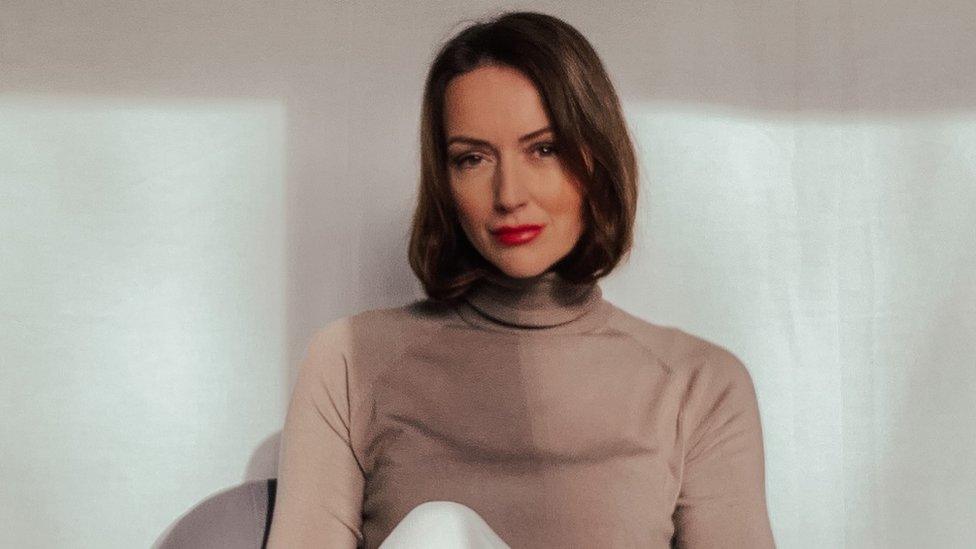
Isabel Kelly would like to see the menopause taught in schools so more people understand it
As for Ms Kelly, she said attitudes still needed to change with regards to menopause.
However, she said there were signs of change.
"We're trained to think it's going to happen in our 50s and 60s, not in your 30s and early 40s - like me.
"I think you're going to think it's just hot flushes, I don't think you're going to think it's any of the other things, so if you're not talking about it how are you ever going to know and get the help?"

Find BBC News: East of England on Facebook, external, Instagram, external and Twitter, external. If you have a story suggestion email eastofenglandnews@bbc.co.uk, external
- Published1 November 2021
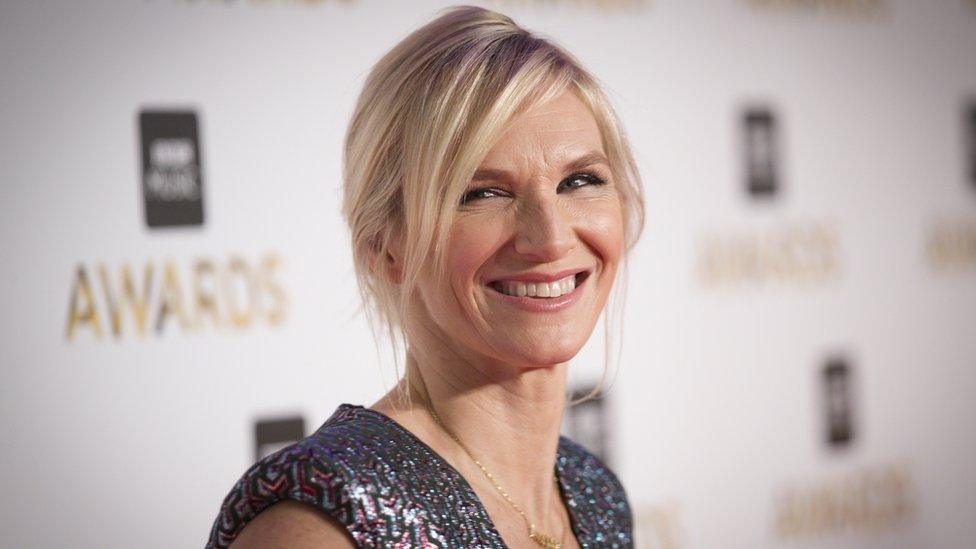
- Published29 October 2021
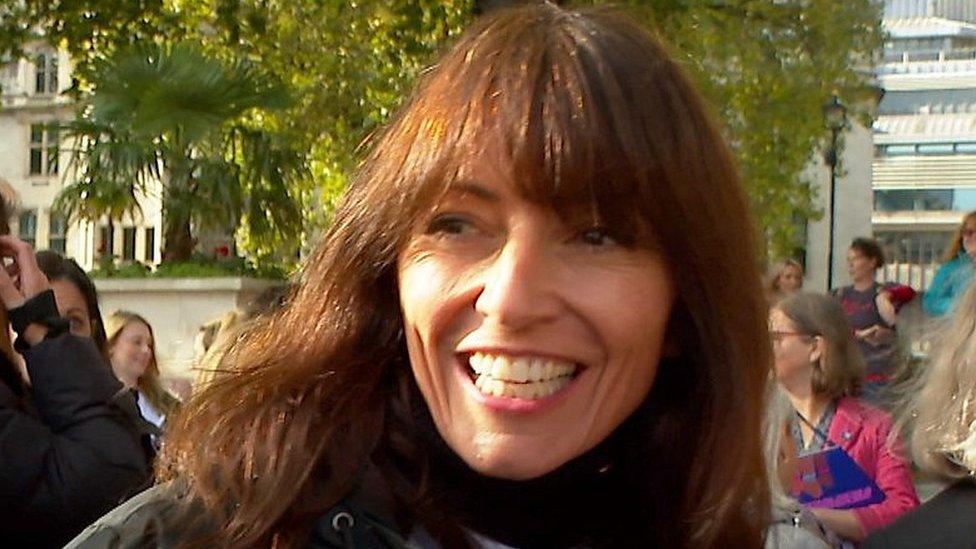
- Published16 May 2021
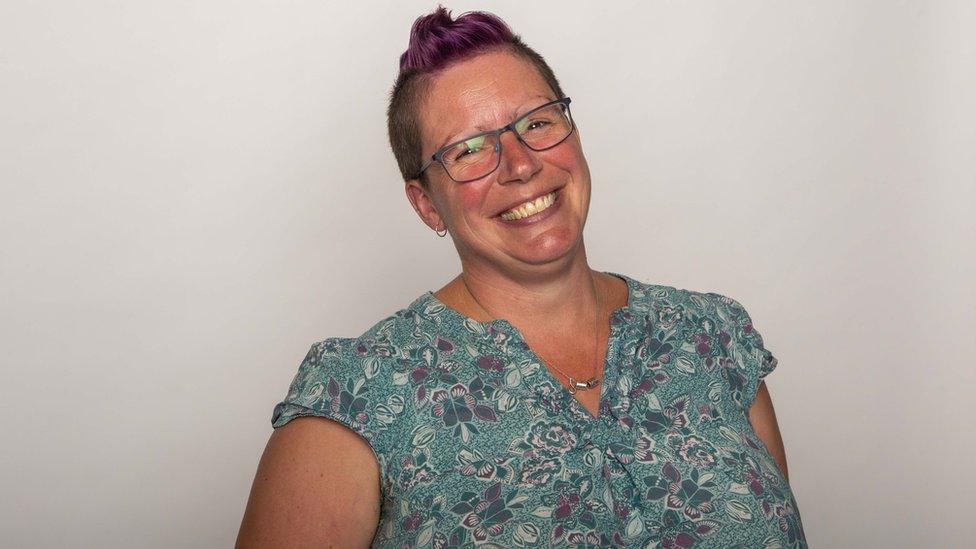
- Published23 February 2021
